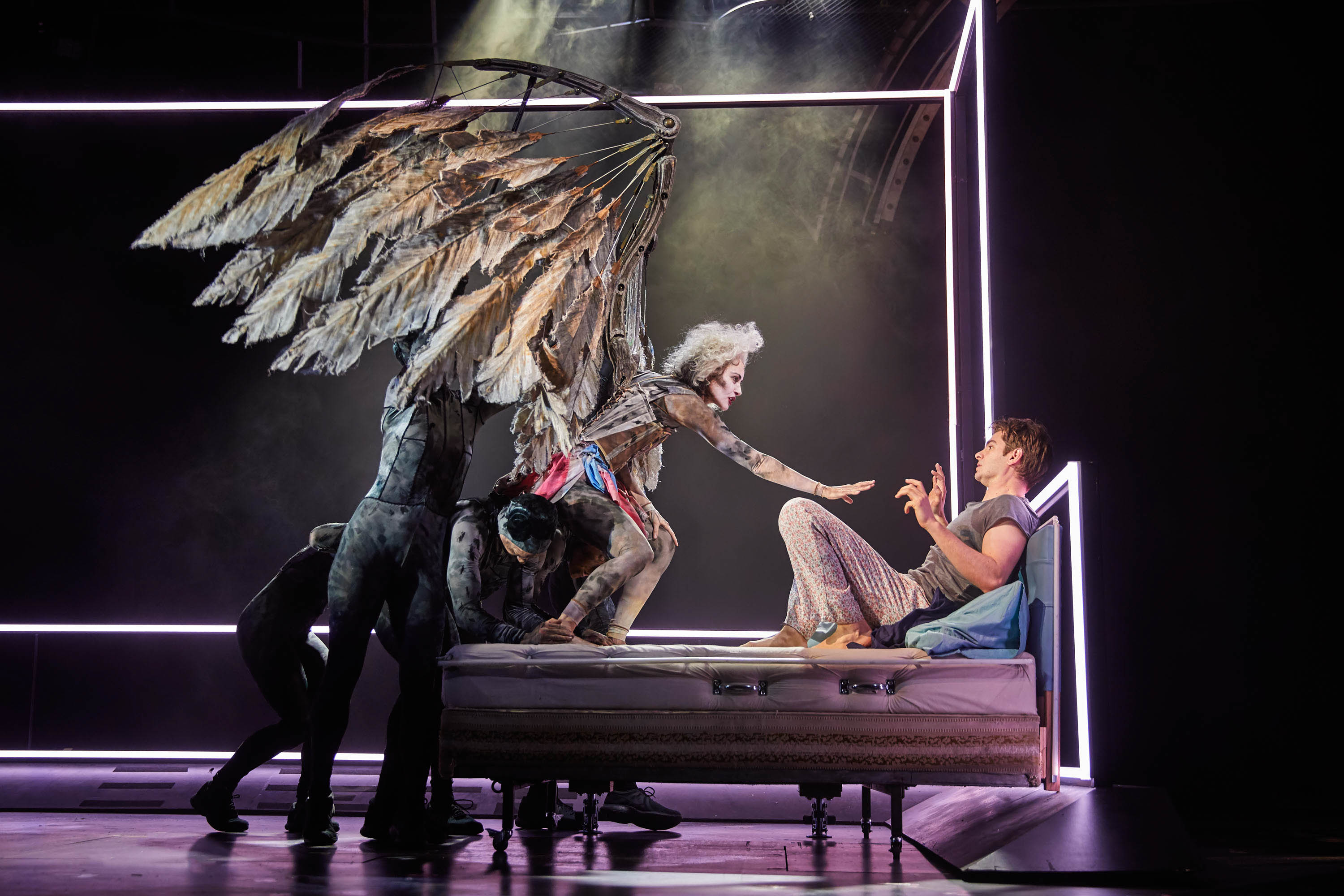This is a story about how a liberal arts education prepares you for the end of society.
In my Junior year as an English major at a small liberal arts college, I had to write a final paper on "Angels in America," by Tony Kushner. The course was Literary Theory, one of the department's most infamous courses due to its rigor and research standards. Seriously, everyone dreaded this course—myself included. At the time, I was an insufferable poetry-writing doofus who couldn't be bothered to care about anything but his own work. I didn't relish the idea of having to cite lots of other people's ideas about literature when it's all subjective anyway.
But the play got me. "Angels," if you don't know it, is about the 1980s AIDS crisis. You should read it, or at least watch the 2000s HBO miniseries based on it. It's a crucial text for understanding where we are and how we got here, which is why I'm writing this now.
While the story is about individuals, the backdrop is the then-burgeoning neoconservative movement and its attendant religious posturing. My junior year was in the second George W. Bush administration, and having endured 7 years of right wing cruelty disguised as religious zeal, "Angels" cut me to the quick.
Ever have a moment with a book or a movie where the Truth about what it's saying just lays you out? That's what "Angels" did to me.
So this final paper? I was determined to do the text justice by giving the research my all. My objective was to apply a sociopolitical gloss to the text, explicating how it reflected the fabric of America then, how it portended the now, and what it suggested for the future.
Now that we're in that future, I hate to say I saw it coming.
This was Real Research™: hours spent in the library; requesting books via interlibrary loan; pages of notes; and yes: MLA-formatted citations for all. This was before the rise of Zotero and such, so every source was cited manually.
You need to understand: while I ended up an educator, I was a terrible student. I only wanted to work on what I cared about, and I had little patience for process. But here I was confronted with a course that demanded more of me if I wanted to succeed (Lit Theory was required for the degree, and good performance was a soft prerequisite for entré to the Department's honor society). Despite those predilections, I became obsessed with this research. Falling down rabbit hole after rabbit hole of political science, history, and even economics from the seventies onward was joyous.
Albeit, the thread I put together was not. The final output of my research fugue was a thesis about how "Angels," told the story of the rise of neoconservatism, and how the power dynamics in the play reflected those that continued to drive US domestic policy. The story I told ranged from Jerry Falwell's church in Lynchburg to the Federalist Society meetings at Yale and Harvard, to the Reagan White House, to the streets of New York and San Francisco. It followed Roy Cohn—a central character in "Angels," who was a real-life scumbag—and, as it happens, attorney of and mentor to one Donald J. Trump.
By the end of this research process, I was having what felt like premonitions about the future of the United States. The moves to grab power through the courts and legislature, all cloaked in religious piety or social normativism, were laid bare. It was clear even then that should those forces prevail, the result would be, well, fascism's new face. I didn't know whose face it would be, but this regime's hazy visage has lived in my head rent-free ever since. Tony Stark got Thanos; I got the Trump regime.
Why am I telling you this? Why did I take the time to recount this research paper I wrote 18 years ago?
Because this academic exercise had nothing to do with job skills—not really. Or if it did, it did so by way of "research skills" that in and of themselves were means to an end wholly divorced from "career opportunities." Maybe if I intended to be an English professor, but otherwise the work had only one goal: to expand my understanding of the world by way of a great work of art. Imagine taking the time to do that. Imagine taking everything you can from that experience, and letting it change you. At its very best, this is what a liberal arts education can and should do. It doesn't produce good workers; it produces good people.
College in America is too damned expensive. It has a host of woes I won't bother to litigate here. But what a humanities-focused learning path can give to the learner is more valuable than any job-specific skill. This is true regardless of where or how the study takes place. Learning is not a product; it is a journey you can choose to undertake at any time. "Angels in America" is yours for the taking right now. I think you should. Then pick up the next great work. And the next, and the next, until your understanding of humanity has grown beyond what you thought was possible when you started.
